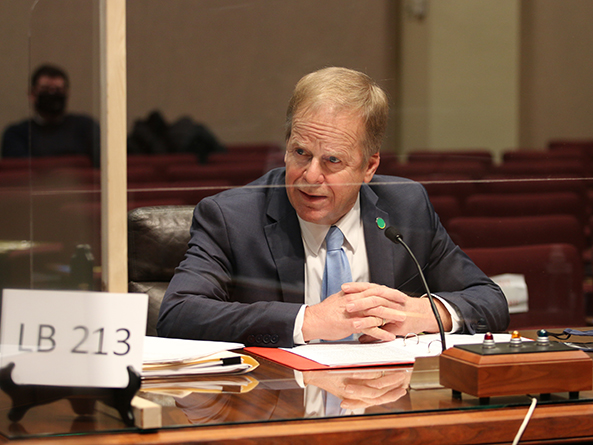Review of state agencies sought
State agencies, boards, departments and councils would undergo an efficiency review under a bill considered Jan. 28 by the Government, Military and Veterans Affairs Committee.

LB213, introduced by Albion Sen. Tom Briese, would require the state Department of Administrative Services to contract with an outside firm to conduct the reviews, which would seek ways to reduce costs, identify potential new sources of funding other than tax increases and make government more accountable to Nebraskans.
According to the department’s fiscal note, such a review would cost an estimated $4 million.
Briese said Nebraska currently has the 14th highest state spending rate in the country. Several other states have undergone similar audits and implemented changes that resulted in millions in savings, he said.
“The goal here isn’t to cut costs by eliminating programs or reducing the services that government in Nebraska is providing,” Briese said, “the core goal of this legislation is to make sure those programs and services are offering those taxpayers the most bang for their buck.”
David Nabity of Omaha spoke in support of the bill. He said across-the-board cuts in government spending are “cruel,” but efficiency audits could reveal targeted savings.
“It’s the only kind way to look for government efficiency,” Nabity said.
DAS Director Jason Jackson testified against the bill. He said state government efficiency has greatly improved under the current administration and that LB213 would be redundant and unlikely to find significant savings.
“A successful government efficiency operation is one that’s imbued in our culture,” Jackson said. “That’s why we’ve invested so much in training.”
Nebraska Association of Public Employees Executive Director Justin Hubly also testified against LB213. Low wages and overtime restrictions have led to a high turnover rate among state employees, he said, increasing expenses due to training new employees and hiring contract workers.
“Cutting costs often doesn’t translate to efficiency and in fact often results in significantly higher costs,” Hubly said.
The committee took no immediate action on the bill.


